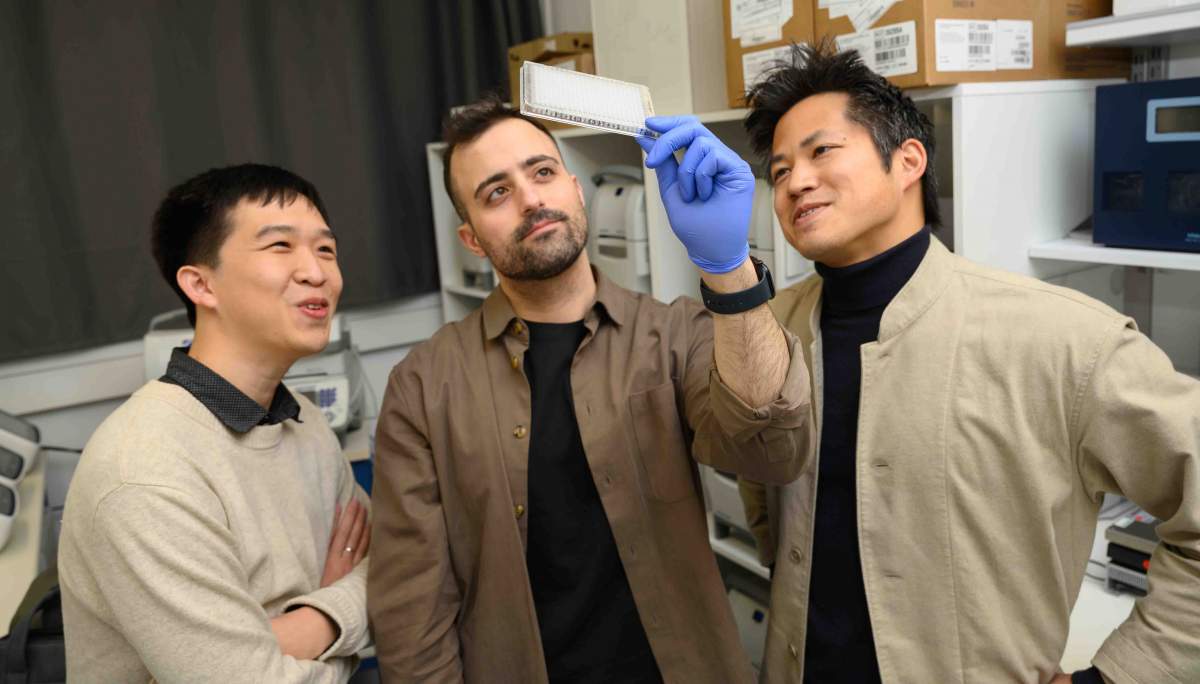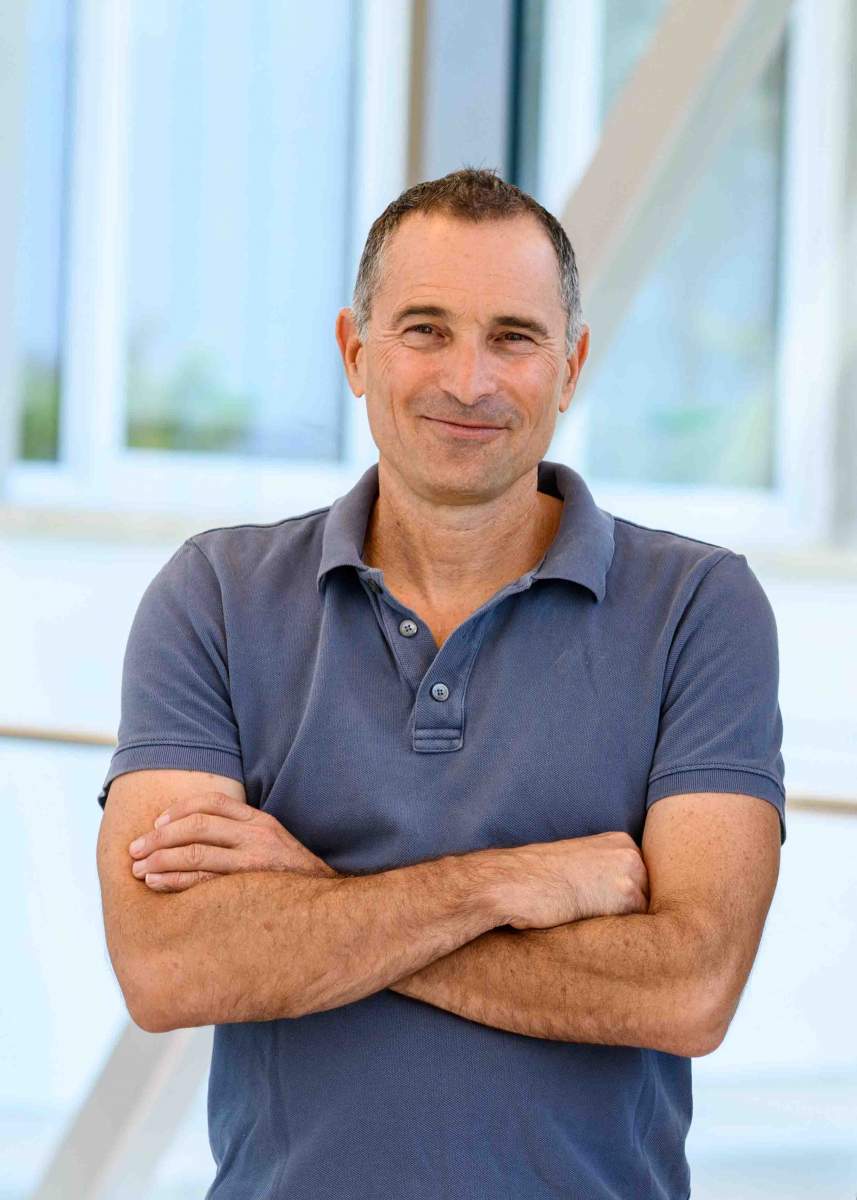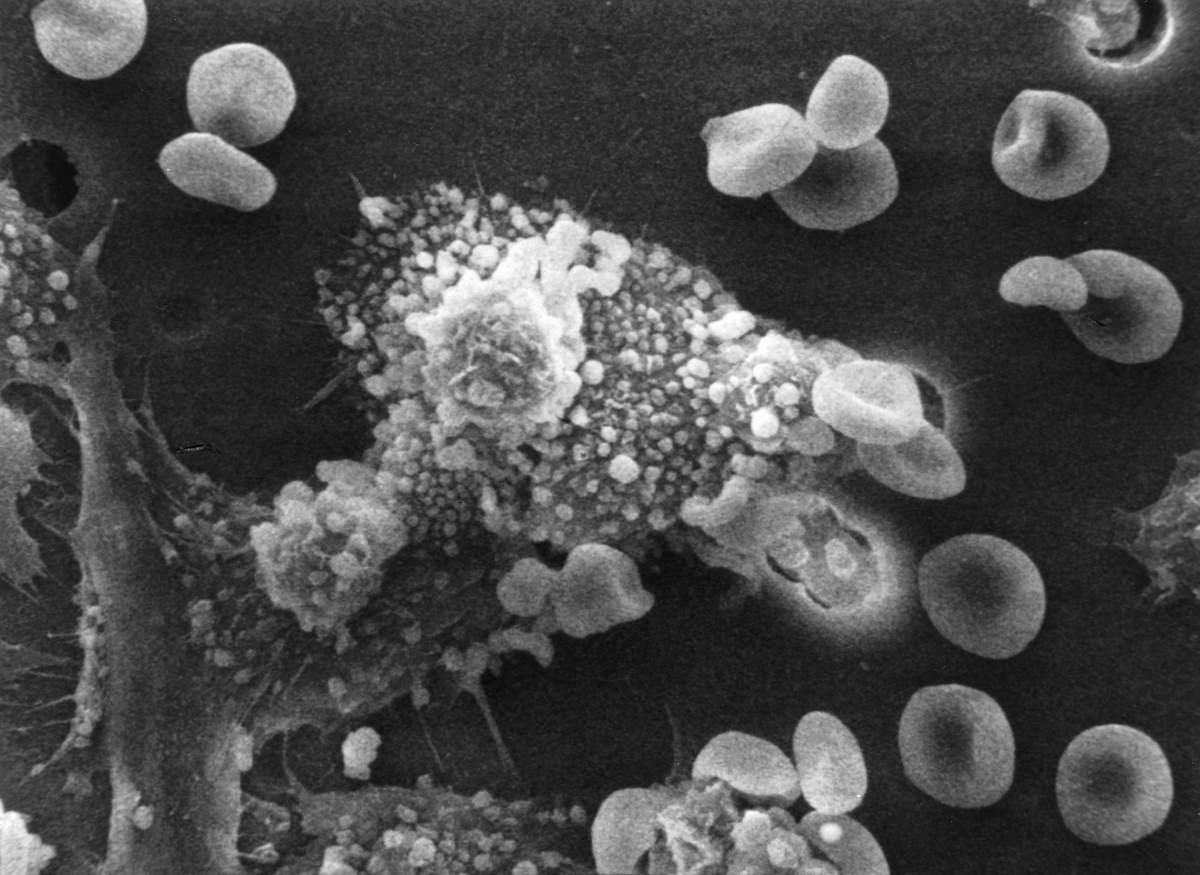To grow, cancer tumors must hijack the immune system for their needs. One of the main tricks that most tumors use is to manipulate a type of immune cell called a macrophage, causing it to protect the tumor from the rest of the immune system, recruit blood vessels and help the cancer spread to other tissues. Now researchers in Prof. Ido Amit 's lab at the Weizmann Institute of Science have used state-of-the-art gene editing and single-cell and AI technologies to identify a master switch that turns macrophages into cancer helpers. Based on this discovery, the team developed a new therapy that was shown to be effective in mice with bladder tumors, one of the most common types of cancer in humans and one for which only limited therapeutic innovations are currently available. The discovery is presented in a paper published today in the journal Cancer Cell .
"Macrophages are highly versatile cells, sort of a 'Swiss knife' of the immune system, capable of activating multiple types of functions for different tasks and in different situations," explains Amit, a faculty member of Weizmann's Systems Immunology Department. These cells have the potential to be highly effective cancer eradicators that can perform multiple antitumor functions, such as promoting anticancer inflammation or alerting the rest of the immune system to the dangers posed by tumor cells. That's precisely the reason most solid cancers need to convert macrophages to their side in order to develop. "By doing that, the tumors protect themselves from the macrophages' 'nasty' side, and also turn on macrophage functions that help them grow, such as suppressing the activity of other immune cell types and encouraging blood vessel growth for supplying oxygen to the tumor."

Indeed, recent studies have revealed a strong link between the activation mode of tumor macrophages - whether these cells fight the tumor or help it grow - and cancer patients' survival. Considering this significance, many studies have searched for ways to reprogram macrophages back to their anticancer mode. "Those efforts failed because they separated macrophages into two very general categories - protumor and antitumor," Amit says. "Today we know that this categorization misses much of the complexity of macrophage function."
The new study, led by Dr. Fadi Sheban, took a more nuanced approach to analyzing macrophage functions. "We started the research by analyzing datasets of macrophages from human tumor samples and looking at the many different functions of these cells," Sheban says. "This analysis enabled us to identify 120 genes suspected of playing a role in activating the macrophages' various protumor functions."
""Advanced technologies reveal how immune cells work in disease - and could lead to new therapies"
The next step was to develop a system capable of screening these 120 potential role-playing genes to identify the genes that are most important for the tumor's ability to hijack macrophage activity. Amit and the team relied on their advanced single-cell technologies, capable of studying cellular function at single-cell resolution, in combination with CRISPR-Cas9 gene editing. The combined technology provided them with the ability to delete individual macrophage genes in a single macrophage, one by one, from the list of suspected genes and see how this changed the properties and function of the macrophage at single-cell resolution.
"Using our newly developed platform, we were able to study the effects of all 120 suspected genes on the function of individual macrophage cells. This phase of the study included sequencing over 100,000 edited macrophage cells in total," says Sheban.

The result was a detailed dataset of how the different regulatory switches activate or deactivate various macrophage functions. "It was a complete mess. At first, we couldn't tell which genes were the most important ones and which macrophage activity they controlled," recalls Sheban. To make sense of the empirical data, Amit and the team used a deep learning tool developed by departmental colleague Prof. Nir Yosef . The tool, called MrVI, simplified the data into a functional map showing both how the different regulatory switches, each represented as a point on the map, influence macrophage functions and how similar the effects of the various regulators are to one another.
"Using MrVI, we were able to understand which gene deletions changed the functions of the macrophages in a way that made them fight the tumor," says Sheban.
One gene, called Zeb2, stood out on the map, as it completely modified the macrophages' tumor-supporting activities. This gene had never been studied in tumor macrophages before. "We understood that a macrophage with a Zeb2 activates all the protumor functions and deactivates all the antitumor programs, and that silencing this gene achieves the exact opposite," adds Sheban. "In other words, we found the master switch for reprogramming macrophages so that they will fight cancer."
More in-depth research into the gene showed that the protein encoded by Zeb2 works by changing the physical structure of the genome, known as the epigenome, thereby determining which other genes will be "open," that is, available for translation into proteins, and which will be inactive, or "closed." "Zeb2 opens all the protumor genes in the macrophages and closes all the antitumor genes. By removing it, we can obtain the opposite effect," says Sheban.

Experiments conducted in tissue culture and in mice showed that silencing Zeb2 converts macrophages into the antitumor mode. "We also did another analysis of data from human patients and found that patients with a high expression of Zeb2 are at a much higher risk of having more aggressive cancer."
The next step was to try to turn this discovery into a potential therapy. To do so, Amit and the team collaborated with Prof. Marcin Kortylewski from the City of Hope National Medical Center in California, USA, who developed a unique DNA molecule designed to attach itself to macrophages and be swallowed by them. "We used this molecule as bait and connected it to a small silencing RNA molecule. Once swallowed by the macrophage, the RNA molecule silences the Zeb2 gene specifically," explains Sheban. The researchers used this newly developed molecule to treat mice with bladder cancer: They injected the molecule into the tumor area and found that the therapy reprogrammed the macrophages to fight the tumor, and that the tumors shrank significantly.
"Now the goal is to develop this approach into a novel cancer treatment for humans," summarizes Amit. "Our study has also demonstrated how advanced technologies can provide an in-depth, high-resolution understanding of the way various immune system players function in different diseases, and how this understanding has the potential to become the foundation of new therapies for patients."
Sheban led the research together with Dr. Truong San Phan, Dr. Ken Xie and Dr. Florian Ingelfinger of Weizmann's Systems Immunology Department. The team also included Dr. Chamutal Gur, Dr. Yuval Shapir Itai, Dr. Roberto Avellino, Dr. Paulina Chalan, Dr. Kiara Freitag, Dr. Ido Yofe, Kfir Mazuz, Dr. Rony Dahan, Prof. Nir Yosef and Dr. Assaf Weiner of Weizmann's Systems Immunology Department; Dr. Ronnie Blecher-Gonen of the Nancy and Stephen Grand Israel National Center for Personalized Medicine; Dr. Chunsong Yu and Prof. Marcin Kortylewski of the Beckman Research Institute of the City of Hope National Medical Center; Dr. Vladimir Yutkin of Hadassah Medical Center, Jerusalem; Pierre Boyeau and Dr. Can Ergen-Behr of the University of California, Berkeley; Justin Hong of Columbia University, New York; and Dr. Yuxiao Liu and Dr. Kangming Chen of the Nanjing GenScript Biotech Co., Nanjing, Jiangsu, China.
Prof. Ido Amit's research is supported by the Moross Integrated Cancer Center; the Elsie and Marvin Dekelboum Family Foundation; and the Lotte and John Hecht Memorial Foundation.
Prof. Amit is the incumbent of the Eden and Steven Romick Professorial Chair.






